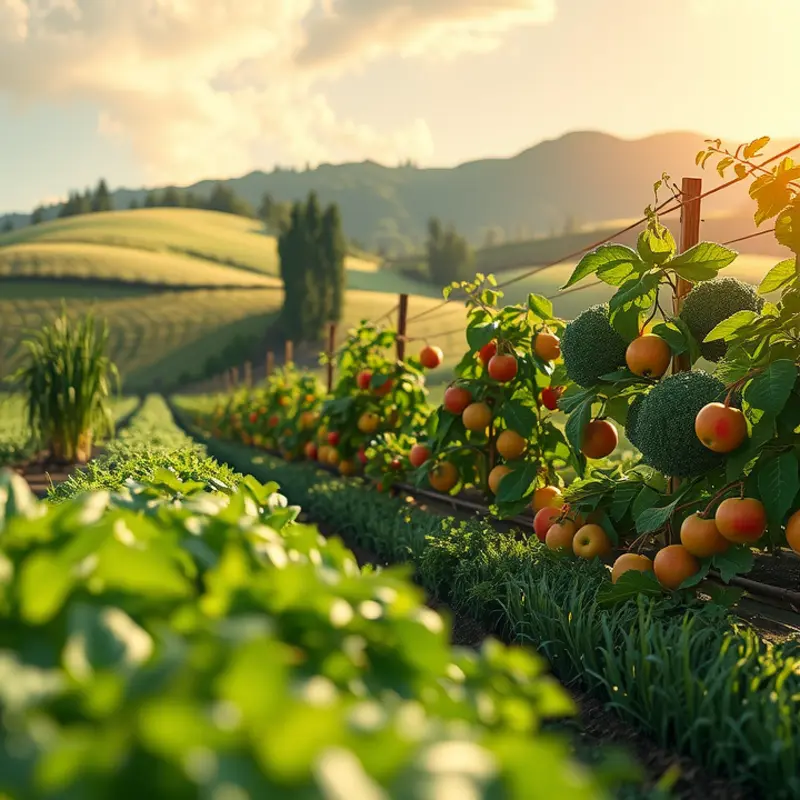Making eco-friendly food choices starts with the right pantry staples. By opting for sustainable products, you can significantly reduce your environmental footprint while enjoying nutritious meals. This guide highlights essential pantry items that are both good for you and the planet, helping you make informed decisions about your food consumption.
Plant-Based Proteins: The Heart of the Eco-Pantry

Transitioning towards plant-based proteins not only supports personal health but also significantly reduces environmental impact. Greenhouse gas emissions from meat production are a major concern, and opting for legumes like lentils can help mitigate this issue. Lentils are rich in protein, fiber, and essential vitamins. They have a low carbon footprint and require less water compared to meat, making them a perfect eco-friendly pantry staple.
Chickpeas are another versatile option. Known for their protein content, they also promote soil health by increasing nitrogen levels through natural processes. This enhances agricultural sustainability and reduces dependency on chemical fertilizers. Incorporating chickpeas into your diet is easy—think hummus, stews, or salads.
Quinoa, the ancient grain, provides a complete protein source containing all nine essential amino acids. It supports biodiversity as it can grow in various climate conditions without extensive resources. Experimenting with quinoa in salads, porridge, or as a rice substitute can add variety to your meals while supporting sustainable farming practices.
Beans, such as black and pinto, serve as reliable substitutes for conventional meats. They add hearty texture to dishes, ensuring satisfaction and nutritional balance. Their cultivation supports crop rotation practices, which improve soil health and yields. Try them in chili, burritos, or casseroles for simple yet nutritious meals.
To diversify your eco-pantry further, consider integrating nuts and seeds. While high in fat, they provide important nutrients like protein, omega-3 fatty acids, and antioxidants. Pairing nuts with cereals or incorporating seeds like hemp or chia into smoothies can enhance daily nutrient intake sustainably.
When integrating plant-based proteins, mindful purchasing can optimize sustainability efforts. Efficient ingredient procurement reduces food waste and saves resources. For tips on buying efficiently, check this guide.
By embracing plant-based proteins, you contribute to a healthier planet and a diversified diet. Each meal becomes a chance to make environmentally conscious choices, seamlessly blending taste, nutrition, and sustainability. Thus, filling your eco-pantry with these essentials can help foster a healthier world while nourishing your body.
Natural Sweeteners and Healthy Fats: Sustainable Alternatives

Transitioning towards a more sustainable kitchen begins by reevaluating even the smallest pantry staples. Natural sweeteners like maple syrup and agave offer an eco-friendly alternative to conventional sugar, providing not just sweetness but also a touch of nature’s uniqueness. Maple syrup, derived from the sap of maple trees, is a minimally processed sweetener that maintains a low environmental impact when sourced sustainably. Agave nectar, harvested from the agave plant, offers a mild, versatile sweetening option. Its production, when done with ethical methods, supports biodiversity by preserving agave plants which are vital for various ecosystems.
When selecting sweeteners, look for certifications ensuring sustainable farming practices. This not only helps in maintaining the health of the planet but also ensures fair wages and conditions for the producers. Incorporating these natural sweeteners into your diet can be as simple as drizzling them over pancakes, mixing them into smoothies, or using them to sweeten baked goods. They provide a subtle depth of flavor that enhances dishes without overwhelming them.
In addition to natural sweeteners, cooking fats play a pivotal role in both culinary enjoyment and sustainability. Conventional cooking oils often contribute to deforestation and biodiversity loss. Opting for healthier fats like coconut oil and olive oil can make a significant difference. Coconut oil is praised not only for its health benefits, such as medium-chain triglycerides that promote better metabolism, but also for its shelf stability, reducing waste in your kitchen.
Olive oil, renowned for its heart-healthy monounsaturated fats, is another sustainable choice. It is crucial, however, to seek out brands that employ eco-friendly harvesting methods. Cold-pressed, extra-virgin varieties retain the most nutrients and flavor, making them ideal for dressings or finishing a dish with finesse. Both coconut and olive oils can substitute most conventional oils, enhancing the taste of sautéed vegetables or creating rich, flavorful marinades.
Nut butters, made from sustainably sourced nuts, are another way to incorporate healthy fats responsibly. Almond, cashew, or peanut butters not only offer protein and healthy fats but also serve as versatile ingredients for both sweet and savory dishes. Incorporating these nut butters into breakfasts, snacks, or even sauces can boost nutritional value while supporting sustainable agriculture. When choosing nut butters, select those with minimal ingredients and eco-certifications that promote ethical sourcing practices.
Committing to these sustainable pantry choices not only improves personal health but also aligns with a broader ecological responsibility. By integrating natural sweeteners and healthy fats, you contribute positively to the environment and enjoy richly flavored, nutritious meals. Exploring recipes that make the most of these ingredients paves the way for a more environmentally-friendly lifestyle. For more ways to enhance sustainable eating habits, visit Ethical Seed Sourcing.
Final words
Embracing eco-friendly pantry staples is not just beneficial for the environment but also allows you to enjoy a nutritious and diverse diet. By incorporating plant-based proteins, natural sweeteners, and healthy fats into your kitchen essentials, you actively contribute to a more sustainable future. Small changes at home can lead to significant impacts, inspiring others in your community to join the movement towards greener living. Start today by replenishing your pantry with these eco-conscious choices, and experience the satisfaction of nourishing both your body and the planet.








